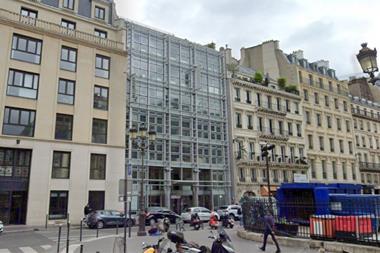UK - The United Kingdom is the most attractive country for institutional investors and pension funds looking to invest in real estate in 2009, according to property analysts at the Atisreal Année Immobiliere conference in Paris this week.
The UK market's transparency, maturity and liquidity, together with the collapse of the sterling, make it more appealing than other European markets and will attract investors wanting to snap up bargains, according to Peter Rösler, chairman of Atisreal Germany.
"I expect for this year, 2009, London will be the most active investment location in Europe. We have seen the first investments and it is to my mind logical."
He continued: "London is a speculative market and, on the one hand, we have seen falling property values of around 35% until now, but this is only in sterling. When we look at the value of developments in Europe, the drop is 55% and that makes a lot of investors hungry to invest in this more or less speculative market."
Atisreal's European quarterly investment report showed investment in Central London, Manchester and Thames Valley was down 41% in the last quarter of 2008.
According to Rösler, investors are looking for long-term leases because they fear rental values could decrease further given that London is the most affected financial sector.
Keith Steventon, head of Research at Atisreal UK, insisted this also concerns pension funds.
"They buy property with strong covenant and long leases. There is strong competition in London but if you can get into the regions then those are the sort of places pension funds should be looking to buy," he told IPE Real Estate.
The US and Germany real estate markets could also provide interesting opportunities for pension funds, says Steventon, however there are still concerns that the valuations do not currently reflect the true value of the German property market.
Pension funds could become more selective when investing in real estate and appear as if they are retreating from the market, according to Steventon.
"I think they are going to be a smaller part of the market, but they have been a smaller part of the market recently because of the growth of the retail funds and property companies and REITs coming in," he said.
"I think [pension funds] are gradually going to come back into the market because property is an attractive income source. We've talked about rents falling but their income is not falling. Income is much more stable," he added.
Rösler agrees real estate will continue to attract institutional investors worldwide despite the volatile markets, and cites Allianz's decision to increase its share of real estate in its portfolio from 3% to 6% as an example of this.
That said, he thinks investors' focus will change and go back to fundamentals.
"We will see a lot more investments in real estate in the next two years but we will see changes. We will not see those big portfolio transactions looking for big volumes. The new investment policy will be much more focused on building quality, on infrastructure, on location, on the needs of the users and this will definitely be the case for the future," he said.
Property analysts speaking at the conference all agreed the real estate markets across Europe were unlikely to fully recover until 2011.
If you have any comments you would like to add to this or any other story, contact Poppy Sketchley on + 44 (0)20 7261 4629 or email poppy.sketchley@ipe.com












